TTC Video – Origins of the Human Mind
$214.95 Original price was: $214.95.$53.00Current price is: $53.00.
Digital Download: You will receive a download link via your order email after successful payment.
Format: [26 AVI, 1 PDF, 1 NFO] | Updating
For thousands of years, the human mind has been shrouded in mystery. Elusive in nature, the subject has prompted an intensive study of several puzzling questions about what the mind is, what it’s made of, how it works, and how it differs from our brains. With the latest advancements in both our understanding of the brain and the technology we use to look inside it, scientists have vastly improved their understanding of the human mind. Now, more so than at any other point in human history, we can better explain and describe
- how the human mind has evolved, both on the scale of our entire species from the dawn of humanity to the present, and on the individual level from birth to adulthood;
- the ways our genes and environments work together to mold the people we become;
- the sources, symptoms, and potential treatment methods for debilitating mental disorders such as depression, attention-deficit hyperactivity disorder, and autism;
- why our intensely social species has the dynamic capability to both ostracize and empathize with the humanity of our fellow individuals; and much more.
Despite its mysterious nature, the human mind and its complexities lie at the heart of who we are as human beings. It shapes our everyday lives and defines our individual personalities. And grasping both the mind’s scientific origins and its biological workings is essential to any well-rounded understanding of possible answers to questions that have fascinated and perplexed humanity throughout history.
Origins of the Human Mind is your authoritative guide to the latest information and viewpoints on what neurobiologists, psychologists, and other scientists know about this fascinating subject. These 24 intriguing and enlightening lectures lay bare the inner workings of our minds—and it’s all brought to you by award-winning Professor Stephen P. Hinshaw, an instructor whose training as a clinical psychologist straddles both the science of the mind and its impact on individual lives. His comprehensive and unbiased approach to this subject reveals how the science of the human mind applies to the life of our species—and to your own life as well.
Explore the Mind on Two Fascinating Scales
So what, exactly, is the human mind? Our minds, according to Professor Hinshaw, are not disembodied entities completely separate from our brains. Rather, they are a rich, diverse, and utterly complex set of mental and emotional experiences that originate in our brains and interact with our surrounding environment.
Grasping such a concept might seem like a daunting task, but Professor Hinshaw’s approach is methodical, organized, and compelling. The foundation of Origins of the Human Mind lies in its exploration of theories about how the mind works on two key scales, each of which offers its own fascinating insights into how and why our minds operate the way they do:
- The evolutionary scale (phylogeny): This scale offers you a captivating window into how minds evolved over hundreds of millions of years and led to the development of brain plasticity, intense emotional bonds, complex executive functions, the potential for culture and invention, and more.
- The individual scale (ontogeny): This scale shows you how changes made on an evolutionary level unfold throughout a single human lifespan, from infancy to adolescence to adulthood to advancing old age.
Examining these scales in depth—and together—allows you to notice similarities and differences in viewpoints and approaches that you wouldn’t get from an intense focus on one or the other. It also demonstrates how viewing the development of the mind on a large and small scale simultaneously provides us with the best possible picture about what the mind truly is.
Get Answers to Provocative Scientific Questions
But what makes Origins of the Human Mind so essential to your grasp of contemporary scientific issues are the answers that Professor Hinshaw provides to some of the most provocative questions involved in the study of the human mind:
- What roles do the building blocks of the brain—such as neurons, synapses, and neurotransmitters—play in operating both the normal and abnormal human mind?
- Is your mind genetically predisposed to act the way it does, or is it shaped by your environment and upbringing?
- If mental disorders like depression and schizophrenia are so harmful, why haven’t the maladaptive genes that cause them been bred out through natural selection?
- Why is there such a long period of helplessness required for full brain maturation, and why does the majority of brain development occur after birth?
- How different, if at all, are the cognitive skills and behavioral patterns of men and women?
Some of the conclusions reached by today’s scientists may simply confirm what you’ve always intuitively suspected. Others may challenge what you thought you knew about your mind. In all instances, however, these answers bring you closer than ever to scientific frontiers we’ve only recently discovered.
Discover the Humanity behind the Science of the Mind
Professor Hinshaw has made a career of studying the human mind from multiple points of view. Yet it’s his background in clinical psychology, his distinguished career as a scientist, and his position as Professor of Psychology at the University of California, Berkeley, that make him an invaluable guide through the often perplexing territory of the human mind.
His ability to make clear sense of a range of scientific topics (including evolution, behavioral genetics, and neurobiology), combined with his ability to distill the humanity hidden within grand scientific theories and concepts, makes these lectures as compassionate as they are comprehensive. Whether discussing the development of emotions and instincts, comparing the 21st-century human brain to that of its primitive ancestor, or even relating his own family’s personal struggles with mental illness, Professor Hinshaw always avoids turning this course into a dry accumulation of facts and data devoid of personal meaning.
Instead, he’s crafted Origins of the Human Mind to be a multifaceted look at one of the hottest subjects in the scientific world. And while more work needs to be done until we finally solve the riddles of our minds, by the conclusion of the last lecture you’ll find yourself better prepared to understand the discoveries of tomorrow as they arise.
Get Download TTC Video – Origins of the Human Mind at IMC.sale today!
Delivery Method
– After your purchase, you’ll see a View your orders link which goes to the Downloads page. Here, you can download all the files associated with your order.
– Downloads are available once your payment is confirmed, we’ll also send you a download notification email separate from any transaction notification emails you receive from IMC.sale.
– Since it is a digital copy, our suggestion is to download and save it to your hard drive. In case the link is broken for any reason, please contact us and we will resend the new download link.
– If you cannot find the download link, please don’t worry about that. We will update and notify you as soon as possible at 8:00 AM – 8:00 PM (UTC+8).
Thank You For Shopping With Us!
Be the first to review “TTC Video – Origins of the Human Mind” Cancel reply
Related Products
Languages & Accents
TTC VIDEO – Understanding Linguistics – The Science of Language
Everything Else
Everything Else
TTC VIDEO – Robinson, Daniel N. – Great Ideas Of Philosophy – 2nd Edition [61 AVI, 1 PDF]
Psychology & Body Language
TTC Video – Prof. Steve Joordens – Memory and the Human Lifespan
Food & Cooking
Medical & Health
TTC Video – Anthony A. Goodman – The Myths of Nutrition and Fitness



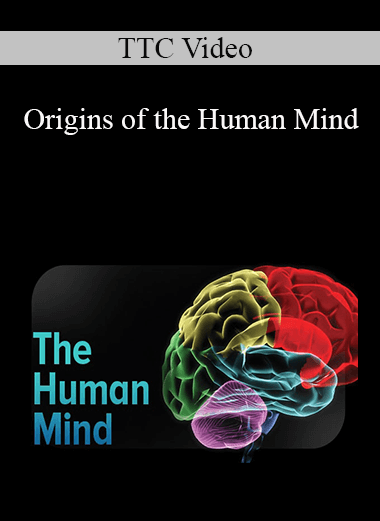



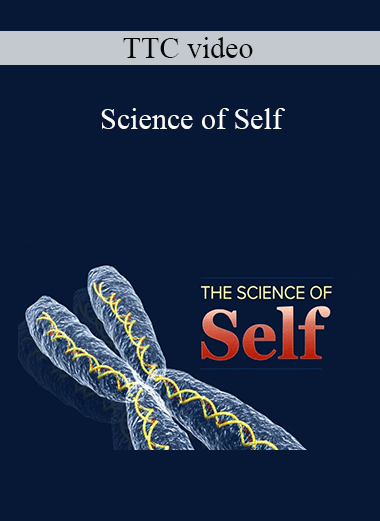
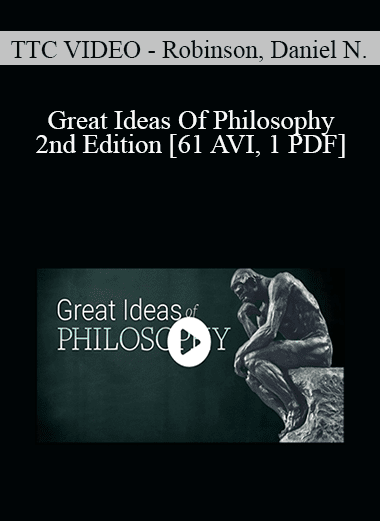
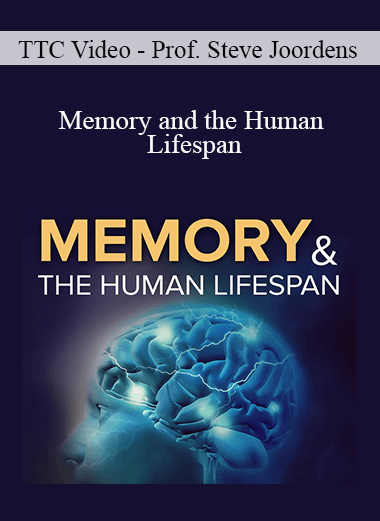


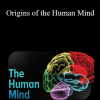
8 reviews for TTC Video – Origins of the Human Mind
There are no reviews yet.